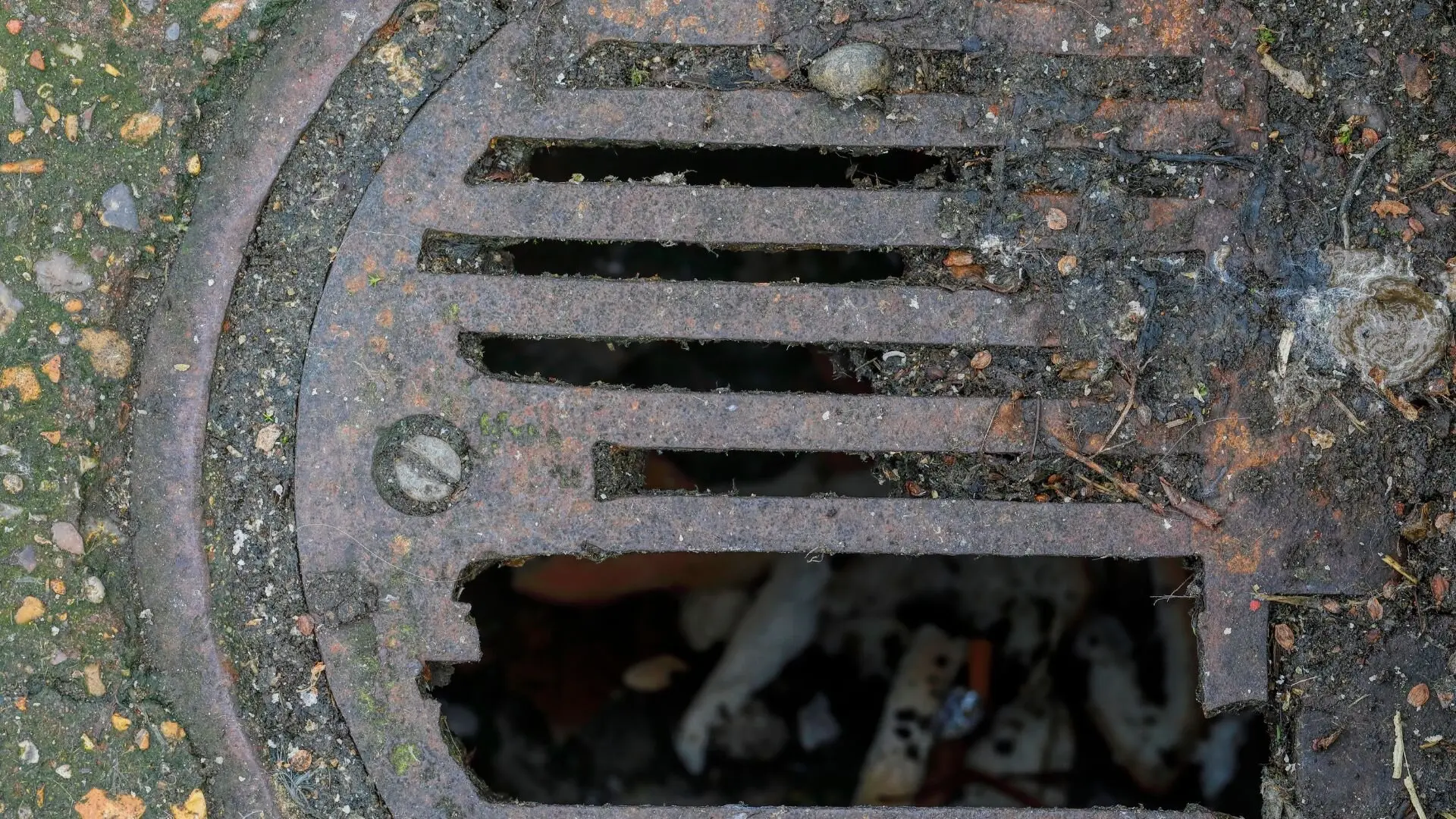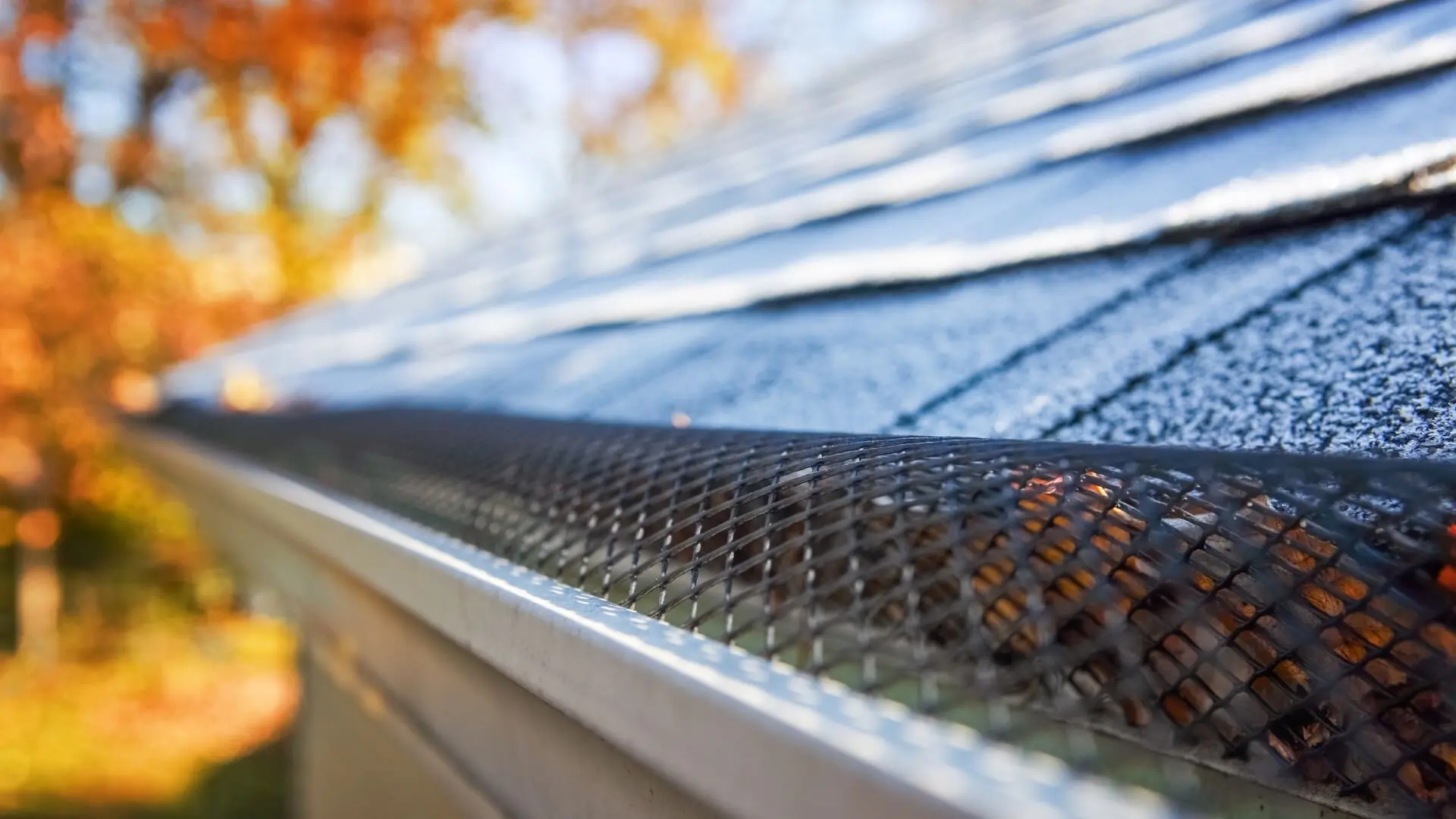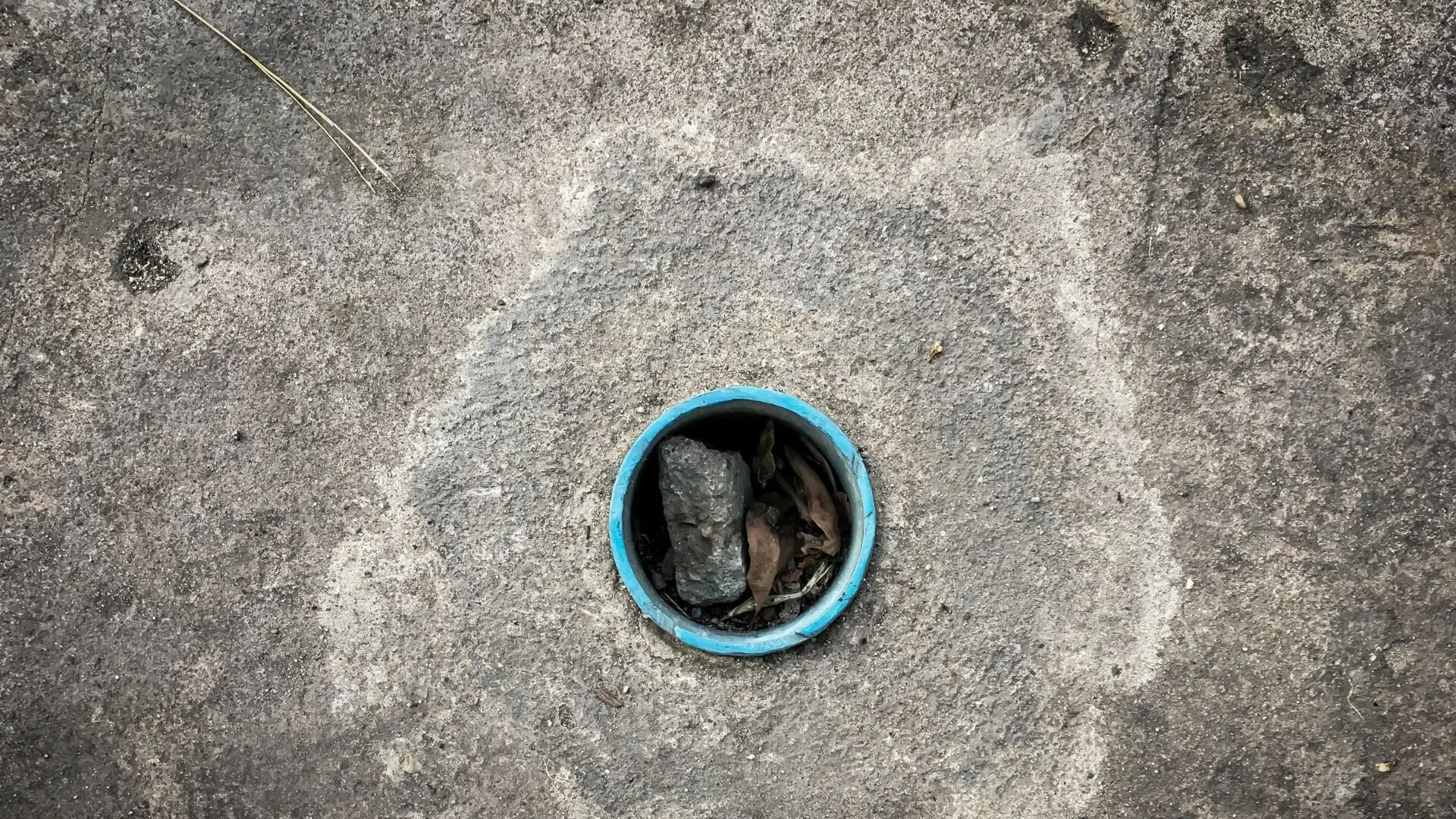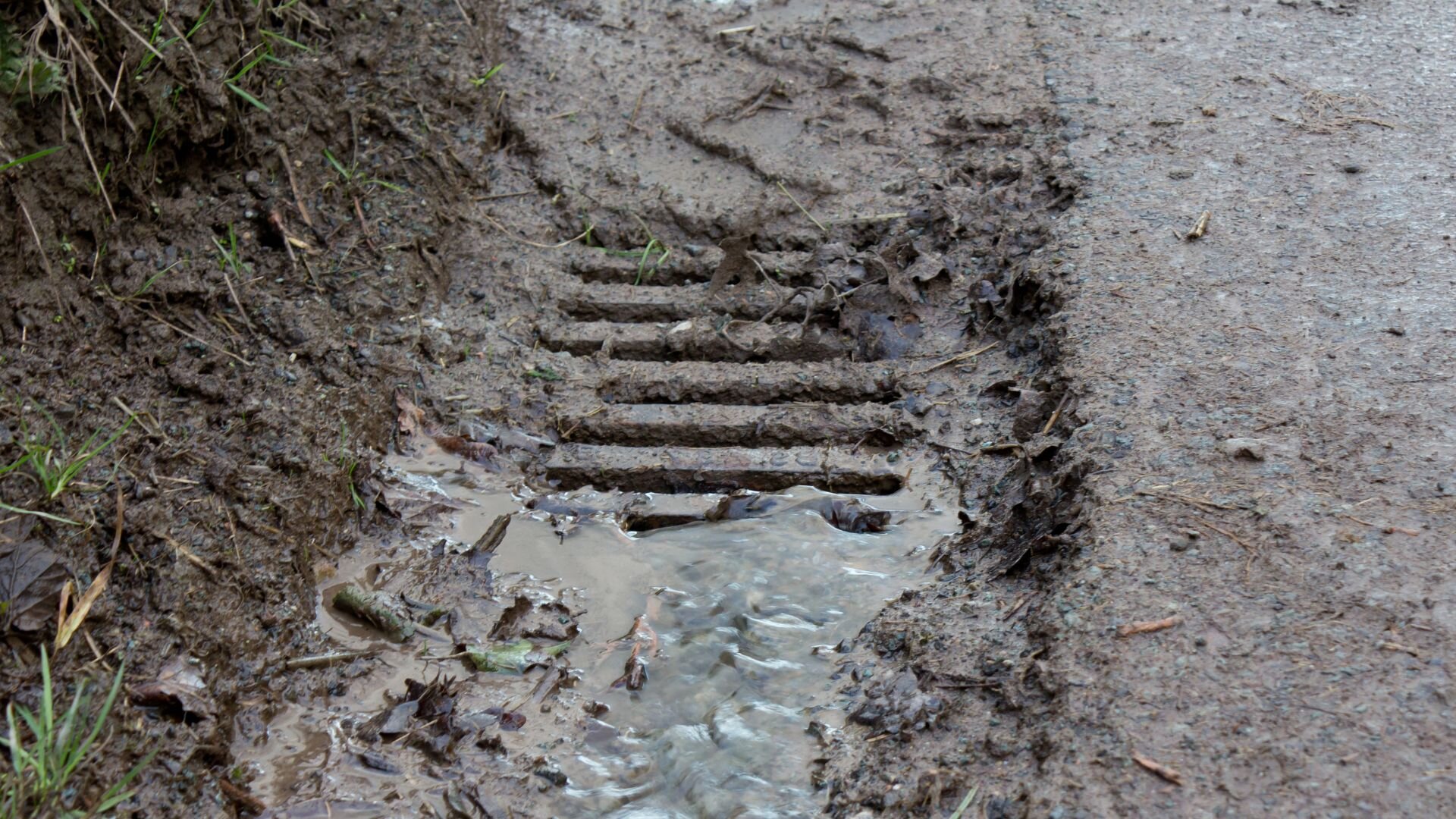Keeping your drainage system in top shape means being aware of how construction debris can affect it. If you’re in the middle of a renovation or living near a busy construction site, it’s crucial to remember that debris from these projects can seriously threaten your drainage.
From clogged gutters to obstructed drainpipes, the presence of construction waste can lead to frustrating blockages and even potential water damage.
We’ll look into how construction debris causes those annoying drain blockages, identify typical debris sources, and offer some handy tips to prevent and tackle these issues.
Understanding how construction debris affects your drains can help you take steps to protect your system and save on expensive repairs.
How Construction Debris Causes Drain Blockages
Construction debris can really mess with your drainage, causing annoying blockages and even water damage. These blockages happen in quite a few ways.
First, dirt, dust, and tiny particles can sneak into your gutters and downspouts during construction or renovation. As they build up, they can block water flow, leading to drainage issues.

Also, materials like concrete, mortar, and plaster might slip into your drainpipes during building or cleanup. Over time, these can harden, forming tough blockages that mess with water flow.
Drain blockages caused by construction debris can have detrimental effects. They can lead to water overflow, leakage, and potential damage to surrounding structures. Understanding the relationship between construction debris and drain blockages is crucial for implementing preventive measures and taking proactive steps to maintain a healthy drainage system.
Preventive Measures To Prevent Drain Blockages
Preventing drain blockages during construction requires a proactive approach to effectively managing and disposing of debris. Implementing strategic measures can help maintain a clear and functioning drainage system.

Pre-Construction Planning
Proper planning before construction kicks off is crucial. This step involves setting up clear guidelines for managing and disposing of waste during the building process. By controlling how construction debris is contained and disposed of, the likelihood of it making its way into the drainage system is significantly reduced.
Regular Cleaning and Maintenance
Maintaining a clean site is essential. This includes routinely removingdebris from gutters, downspouts, and drain openings. Regular inspections are a vital component of this process, allowing for early detection of potential blockages and the opportunity for prompt action to be taken.
Installation of Protective Measures
Protectivedevices such as gutter guards and drain covers are highly effective in preventing blockages. Gutter guards keep larger debris out of gutters and downspouts, while drain covers catch debris before entering the drainage system, ensuring that water flow remains unobstructed.
Construction Worker Awareness
It is critical to raise awareness among construction workers and contractors about the importance of proper waste management. Educating the workforce on the consequences of allowing construction debris to enter the drain system can foster a culture of responsibility. Workers should be encouraged to actively participate in preventive measures and clean up promptly after construction activities.
Clearing Drain Blockages Caused by Construction Debris
Construction projects often generate significant debris that can inadvertently find its way into drains and cause blockages. These blockages can lead to various issues, such as flooding, foul odours, and compromised drainage systems. Clearing drain blockages caused by construction debris requires prompt action and specialised techniques to ensure effective and long-lasting solutions.

The first step in addressing drain blockages is to assess the extent of the problem. A thorough inspection is conducted to identify the nature and location of the obstruction. Construction debris can range from concrete chunks and gravel to construction materials like pipes, wires, and plastic sheeting. Understanding the debris causing the blockage is crucial in determining the appropriate action.
Once the blockage is identified, professional drain clearing services employ specialised equipment to remove the debris. High-pressure water jetting is commonly utilised to break down and dislodge obstructing materials. This technique involves directing a powerful stream of water into the drain, effectively clearing the path and restoring proper water flow. In some cases, mechanical augers or drain snakes may also be employed to extract the debris physically.
It is important to note that clearing drain blockages caused by construction debris requires expertise and should be performed by trained professionals. Attempting to clear the blockage with the necessary knowledge and equipment can prevent the situation and potentially damage the drainage system.
Prevention is crucial to avoid such blockages in the first place. Contractors and construction companies should implement proactive measures, such as placing practical barriers or screens to prevent debris from entering drains during construction activities. Regular inspections and maintenance of drains throughout construction can also help identify and address potential blockages before they become significant issues.
Maintenance and Regular Inspections
Maintenance and regular inspections are crucial in ensuring various systems and structures’ longevity and optimal performance. Whether it’s a residential property, commercial building, or industrial facility, implementing a comprehensive maintenance and inspection program is essential for identifying potential issues, addressing them promptly, and preventing costly repairs or replacements.
Regular inspections provide an opportunity to assess the condition of different components, such as electrical systems, plumbing, HVAC systems, roofs, and structural elements. By conducting thorough visual examinations and utilising specialised tools and techniques, professionals can detect early signs of wear and tear, corrosion, leaks, or other potential problems that may compromise the building’s functionality and safety.

During inspections, experts also evaluate the efficiency of systems and equipment, ensuring they meet industry standards and regulatory requirements. For instance, HVAC systems are examined to verify proper airflow, temperature control, and ventilation, while electrical systems are assessed for potential hazards or outdated components. Plumbing systems, including pipes, drains, and fixtures, are checked for leaks, blockages, or inefficiencies that may lead to water damage or reduced water flow.
Maintenance activities are crucial for addressing the issues identified during inspections and preventing escalation. This includes routine tasks such as cleaning, lubricating, and adjusting equipment, replacing worn-out parts, and conducting necessary repairs. By adhering to a well-defined maintenance schedule, property owners can extend the lifespan of their assets, optimise energy efficiency, and reduce the likelihood of unexpected breakdowns or system failures.
In addition to reactive maintenance, proactive measures are also taken to prevent potential problems before they occur. This may involve applying protective coatings to surfaces to prevent corrosion, implementing pest control measures, or installing backup systems to ensure uninterrupted operation in case of power outages.
It is important to note that qualified professionals should carry out maintenance and inspections with the necessary expertise and knowledge of industry standards and regulations. They have the skills to accurately assess different components’ conditions, recommend appropriate maintenance measures, and implement them effectively.
Keeping Drains Clear
Understanding how construction debris leads to drain blockages is essential in preventing potential issues and maintaining efficient drainage systems. Construction debris, such as concrete, pipes, and plastic, can cause significant blockages, flooding and compromised water flow. To address and resolve these blockages effectively, it is crucial to seek professional help.
At Fixed Today, we specialise in providing expert drain clearing and maintenance services. Our team of trained professionals has the knowledge, experience, and specialised equipment to identify and remove construction debris blockages swiftly and efficiently. We prioritise prompt action and employ techniques like high-pressure water jetting and mechanical augers to clear drains effectively.
Whether your property is residential, commercial, or industrial, our dedicated team is ready to assist you. Don’t let construction debris cause drain blockages that disrupt your daily life or damage your property.
Contact Fixed Today and let our experts restore your drains to optimal functionality, ensuring smooth water flow and preventing future blockages. Trust us to deliver reliable and professional solutions tailored to your specific needs.














